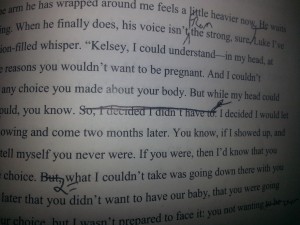 So, I’m finishing up the copy editing process on my book and have a bunch of corrections from my editor to either accept or decline. As I was going through them, I wanted to clarify before I made a decision on some because they weren’t cut and dry errors.
So, I’m finishing up the copy editing process on my book and have a bunch of corrections from my editor to either accept or decline. As I was going through them, I wanted to clarify before I made a decision on some because they weren’t cut and dry errors.
Below, I’m listing some of the errors noted in my manuscript that might be lurking in yours. I’ll start with the more common things and move to the more obscure.
- Homophones. These are words that sound the same but are spelled differently and have different meanings. I catch homophone errors a fair amount in my first draft. Something about writing quickly and the brain pulling a version of the word I want (even if it’s the wrong one). I think there were only a few that ended up in the draft I sent to the editor, but they were there. I accidentally called a character a “descent” fellow instead of decent. I also said “my shoes have souls.” They really have “soles.” Shoes with souls would have created an entirely different kind of book.
- Who vs whom. I had a couple of incidences where I used the wrong word. A common mistake, but worth noting. The key thing to remember is whom is an objective pronoun. You’re going to use it as the object of a verb or the object of a preposition. Simply put, you’d use whom, anytime you might say him. I partied with him. With whom did you party? Check the Grammarist for more on who vs whom.
- Blond vs blonde. This is a fairly specific example, but I thought I’d include it because a couple writers I know hadn’t heard of this rule. In this specific example, I used “blonde” to refer to a woman’s wig. I was taught that women are blonde and men are blond, but my editor crossed out my e. The Internet agreed with me, sort of. Men are blond and women are blonde; the one object reference was blond. Since it’s referring to a woman’s hair piece, I went with blonde. See Quick and Dirty Grammar for more on blond vs blonde.
- Home in vs. hone in. I include this because it was something I hadn’t encountered before. “Hone in” was in my text, and to be honest, I don’t recall ever having seen or heard “home in” used. If I did, my brain compensated and changed it in my perception to “hone in.” The Internet agreed with my editor. Home in is preferred worldwide, though at least a third of the US population (I would be included here) prefers hone in.
- ‘Til vs. till. I’ve always thought ‘til was the proper version, because it’s a shortening of until. You use the apostrophe to indicate you’ve removed letters from the word. Also, I think of a till as something you store money in (or steal money from [not me, of course, just rotten scalawags]). So, I’ve always used ‘til. My editor was like, nope. I checked online, and learned ‘til is acceptable, but it is a variant of till, the preferred version worldwide (American writers–that would be me, again–like ’til). Makes me sad, but I’ve changed it. Till we meet again. Sniff, sniff.
As this post is close to 600 words, that’s it for today. Part two of this post will run Thursday, and include some other issues that arose. Any issues you noted in your writing that you want to add to the mix?
Have a great rest of your day.